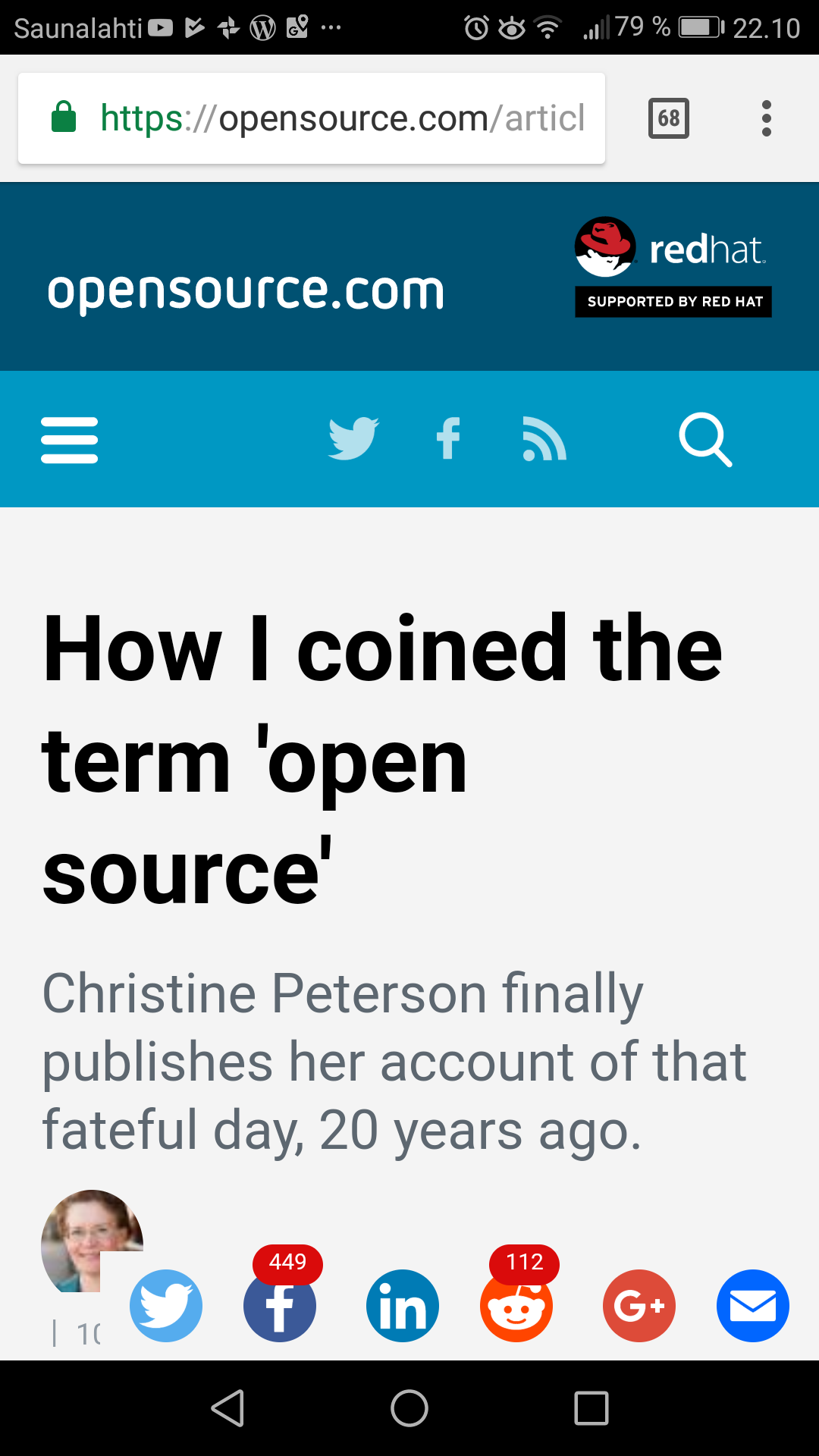https://opensource.com/article/18/2/coining-term-open-source-software
On February 3, is the 20th anniversary of the introduction of the term “open source software“. This article tells the story how this term started to replace term “free software”.

https://opensource.com/article/18/2/coining-term-open-source-software
On February 3, is the 20th anniversary of the introduction of the term “open source software“. This article tells the story how this term started to replace term “free software”.

4 Comments
Tomi Engdahl says:
Mozilla’s radical open-source move helped rewrite rules of tech
https://www.cnet.com/news/mozilla-open-source-firefox-move-helped-rewrite-tech-rules-anniversary/
A gamble 20 years ago unleashed the source code for the browser that became Firefox. The approach is now core to Facebook, Google and everyone else.
Twenty years ago, Netscape Communications was desperate. It was the darling of the first wave of internet companies for its ability to let you surf the web, but Microsoft had crushed its business prospects by giving away a web browser for free.
So Netscape did something that was radical for the time: On March 31, 1998, it gave away the source code behind its Netscape Communicator browser, the once-secret programming instructions that developers used to build the software. The project, called Mozilla
Tomi Engdahl says:
In the spirit of open government, France dumps 9,067 repos online to show off its FOSS credentials https://www.theregister.com/2021/11/11/french_government_foss/
Tomi Engdahl says:
TIME TILL OPEN SOURCE ALTERNATIVE
https://staltz.com/time-till-open-source-alternative.html
Open source is coming for your business. It is just a matter of time before there exists a compelling open source alternative to your software. It won’t happen overnight, it will start out as a poor alternative, but slowly growing to become the robust and cheap (in fact, free!) solution that everyone uses.
In this blog post, I’ll prove this to you with data. I present a measurement I call “Time Till Open Source Alternative” (TTOSA) which represents how long a proprietary software lasted without a direct open source alternative.
Tomi Engdahl says:
Open-source software isn’t usually “slightly worse”, in fact it’s usually vastly superior, but requires more computer prowess from its users.
This, in my view, is a good thing for those of us who actually use computers as powertools. From my point of view, mainstream software is considerably worse, in fact usually useless, precisely because it makes all my decisions for me, and hides options that my grandparents might mess around with and break stuff.
While I recognize that targeting power users isn’t what most people need, I reject the notion that all software should be targeted only at most people. Chainsaws are not targeted at kitchens, and that’s fine. Don’t use open-source software if you’re not using your computer as a powertool. I will, because I do. That works for me and I find nothing wrong with that situation. People using different tools for different needs is not a problem.
In fact, usually, when an open-source project tries to turn mainstream, the first thing that happens is that it gets made more broken for power users. It’s not worth it. Let power users be power users and everyday users be everyday users. Not everything has to fit with everyone’s needs.
The most important thing is actually not pushing open-source software on everyone, but rather open standards. And not just so that open-source enthusiasts can make compatible software, but also to increase competition among closed-source developers.
https://www.facebook.com/share/p/pCQTRV1e1chjutc7/